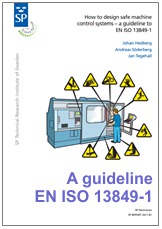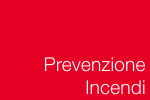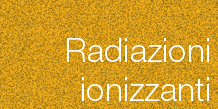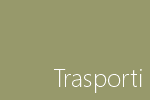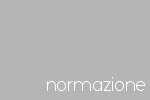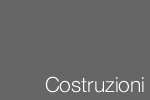| 1 x afterRenderRawModule mod_menu (Temi) (291.1KB) (14.83%) | 41.49ms |
| 1 x afterRenderRawModule mod_menu (Main Menu) (21.79KB) (10.65%) | 29.80ms |
| 1 x After Access::preloadPermissions (com_content) (16.77MB) (9.73%) | 27.23ms |
| 1 x afterRenderRawModule mod_articles_categories (Marcatura CE) (925.2KB) (9%) | 25.18ms |
| 1 x afterRender (769.25KB) (8.83%) | 24.70ms |
| 1 x afterInitialise (3.44MB) (7.98%) | 22.33ms |
| 1 x Before Access::getAssetRules (id:8 name:com_content) (481.97KB) (6.76%) | 18.90ms |
| 1 x afterRenderComponent com_content (78.32KB) (5.43%) | 15.18ms |
| 1 x beforeRenderRawModule mod_login (Accedi all'area riservata) (1.75MB) (4.63%) | 12.95ms |
| 1 x afterRenderRawModule mod_menu (Documenti Abbonati) (179.28KB) (2.27%) | 6.36ms |
| 1 x afterRoute (366.41KB) (2.21%) | 6.19ms |
| 1 x afterRenderRawModule mod_menu (Top Menu) (31.08KB) (1.74%) | 4.88ms |
| 1 x afterRenderRawModule mod_menu (Policies) (23.48KB) (1.52%) | 4.25ms |
| 1 x afterLoad (86.77KB) (1.43%) | 4.00ms |
| 1 x afterRenderRawModule mod_menu (Marketing) (21.64KB) (1.3%) | 3.64ms |
| 1 x beforeRenderRawModule mod_menu (Main Menu) (32.91KB) (1.24%) | 3.47ms |
| 1 x afterRenderRawModule mod_menu (Store) (17.13KB) (1.13%) | 3.17ms |
| 1 x afterRenderRawModule mod_menu (Social) (60.12KB) (1.13%) | 3.15ms |
| 1 x afterRenderRawModule mod_menu (Media) (14.41KB) (0.97%) | 2.71ms |
| 1 x afterRenderRawModule mod_login (Accedi all'area riservata) (68.43KB) (0.92%) | 2.58ms |
| 1 x afterRenderRawModule mod_menu (Info) (10.42KB) (0.75%) | 2.10ms |
| 1 x Before Access::preloadComponents (all components) (34.21KB) (0.29%) | 820μs |
| 1 x Before Access::getAssetRules (id:2275 name:com_content.article.978) (514.65KB) (0.29%) | 818μs |
| 1 x beforeRenderComponent com_content (37.58KB) (0.26%) | 725μs |
| 1 x afterRenderModule mod_menu (Main Menu) (11.27KB) (0.22%) | 624μs |
| 1 x Before Access::getAssetRules (id:1000685 name:com_attachments) (10.74KB) (0.22%) | 618μs |
| 1 x afterRenderModule mod_articles_categories (Marcatura CE) (34.48KB) (0.2%) | 563μs |
| 1 x afterRenderModule mod_menu (Temi) (22.67KB) (0.19%) | 530μs |
| 1 x afterRenderModule mod_custom (Titolo "Marcatura CE") (2.67KB) (0.19%) | 522μs |
| 1 x afterRenderModule mod_menu (Social) (3.92KB) (0.18%) | 507μs |
| 1 x afterRenderModule mod_menu (Documenti Abbonati) (3.94KB) (0.18%) | 505μs |
| 1 x afterRenderModule mod_menu (Media) (4.36KB) (0.18%) | 502μs |
| 1 x afterRenderModule mod_menu (Info) (3.05KB) (0.18%) | 500μs |
| 1 x afterRenderModule mod_menu (Store) (3.3KB) (0.18%) | 499μs |
| 1 x afterRenderModule mod_menu (Marketing) (3.3KB) (0.18%) | 496μs |
| 1 x afterRenderModule mod_menu (Policies) (3.3KB) (0.18%) | 493μs |
| 1 x afterRenderModule mod_custom (Certifico s.r.l.) (3.36KB) (0.18%) | 492μs |
| 1 x afterRenderRawModule mod_custom (Certifico s.r.l.) (4.22KB) (0.17%) | 479μs |
| 1 x beforeRenderRawModule mod_menu (Social) (39.6KB) (0.15%) | 409μs |
| 1 x After Access::preloadComponents (all components) (115.88KB) (0.15%) | 407μs |
| 1 x afterRenderModule mod_login (Accedi all'area riservata) (6.95KB) (0.12%) | 326μs |
| 1 x afterDispatch (3.06KB) (0.08%) | 228μs |
| 1 x afterRenderModule mod_custom (Regolamento Macchine) (7.58KB) (0.07%) | 188μs |
| 1 x After Access::getAssetRules (id:2275 name:com_content.article.978) (12.67KB) (0.05%) | 141μs |
| 1 x afterRenderRawModule mod_custom (Regolamento Macchine) (1.03KB) (0.04%) | 123μs |
| 1 x afterRenderRawModule mod_custom (Titolo "Marcatura CE") (992B) (0.04%) | 118μs |
| 1 x afterRenderRawModule mod_custom (D. Lgs. 81/2008 - TUSSL) (928B) (0.03%) | 97μs |
| 1 x afterRenderRawModule mod_custom (Codice Prevenzione Incendi | RTO II) (928B) (0.03%) | 94μs |
| 1 x afterRenderRawModule mod_custom (TUA | Testo Unico Ambiente) (928B) (0.03%) | 92μs |
| 1 x afterRenderRawModule mod_custom (Direttiva macchine e norme armonizzate) (1.05KB) (0.03%) | 92μs |
| 1 x afterRenderRawModule mod_custom (Certifico ADR) (1.02KB) (0.03%) | 91μs |
| 1 x afterRenderRawModule mod_custom (MOCA - GMP | Consolidato) (1.03KB) (0.03%) | 91μs |
| 1 x afterRenderRawModule mod_custom (TUSSL / Link) (976B) (0.03%) | 90μs |
| 1 x afterRenderRawModule mod_custom (Abbonamento Full Plus) (912B) (0.03%) | 90μs |
| 1 x afterRenderRawModule mod_custom (Abbonamento Full) (912B) (0.03%) | 90μs |
| 1 x afterRenderRawModule mod_custom (D. Lgs. 196/2003 - Codice protezione dati personali | GDPR) (960B) (0.03%) | 89μs |
| 1 x afterRenderRawModule mod_custom (CEM4 || Ultimo aggiornamento) (1.03KB) (0.03%) | 89μs |
| 1 x afterRenderRawModule mod_custom (Codice Unico Sicurezza) (928B) (0.03%) | 89μs |
| 1 x afterRenderRawModule mod_custom (D. Lgs. 231/2001 - Responsabilità amministrativa enti) (960B) (0.03%) | 88μs |
| 1 x afterRenderRawModule mod_custom (Glossario Certifico HSE) (1.03KB) (0.03%) | 88μs |
| 1 x afterRenderRawModule mod_custom (D. Lgs. 101/2020 - Protezione esposizione radiazioni ionizzanti) (960B) (0.03%) | 88μs |
| 1 x afterRenderRawModule mod_custom (DM 21 Marzo 1973 | MOCA IT) (1.03KB) (0.03%) | 88μs |
| 1 x afterRenderRawModule mod_custom (MEPA) (960B) (0.03%) | 87μs |
| 1 x afterRenderRawModule mod_custom (Food Safety book) (1.02KB) (0.03%) | 86μs |
| 1 x afterRenderRawModule mod_custom (Store Certifico) (976B) (0.03%) | 85μs |
| 1 x afterRenderModule mod_menu (Top Menu) (4.11KB) (0.03%) | 79μs |
| 1 x afterRenderModule mod_custom (D. Lgs. 81/2008 - TUSSL) (4.02KB) (0.03%) | 76μs |
| 1 x afterRenderModule mod_custom (Codice Prevenzione Incendi | RTO II) (4.16KB) (0.03%) | 74μs |
| 1 x afterRenderModule mod_custom (Certifico ADR) (3.89KB) (0.03%) | 72μs |
| 1 x afterRenderModule mod_custom (MOCA - GMP | Consolidato) (4.02KB) (0.03%) | 72μs |
| 1 x afterRenderModule mod_custom (TUA | Testo Unico Ambiente) (4.03KB) (0.03%) | 71μs |
| 1 x afterRenderModule mod_custom (Abbonamento Full Plus) (15.14KB) (0.03%) | 71μs |
| 1 x afterRenderModule mod_custom (Abbonamento Full) (4.89KB) (0.03%) | 71μs |
| 1 x afterRenderModule mod_custom (MEPA) (3.75KB) (0.03%) | 71μs |
| 1 x afterRenderModule mod_custom (CEM4 || Ultimo aggiornamento) (3.91KB) (0.03%) | 70μs |
| 1 x afterRenderModule mod_custom (Codice Unico Sicurezza) (4.02KB) (0.03%) | 70μs |
| 1 x afterRenderModule mod_custom (DM 21 Marzo 1973 | MOCA IT) (4.03KB) (0.03%) | 70μs |
| 1 x afterRenderModule mod_custom (D. Lgs. 231/2001 - Responsabilità amministrativa enti) (4.42KB) (0.02%) | 70μs |
| 1 x afterRenderModule mod_custom (Direttiva macchine e norme armonizzate) (4.16KB) (0.02%) | 70μs |
| 1 x afterRenderModule mod_custom (D. Lgs. 101/2020 - Protezione esposizione radiazioni ionizzanti) (4.44KB) (0.02%) | 69μs |
| 1 x afterRenderModule mod_custom (TUSSL / Link) (3.64KB) (0.02%) | 69μs |
| 1 x afterRenderModule mod_custom (D. Lgs. 196/2003 - Codice protezione dati personali | GDPR) (4.44KB) (0.02%) | 69μs |
| 1 x afterRenderModule mod_custom (Glossario Certifico HSE) (3.77KB) (0.02%) | 68μs |
| 1 x afterRenderModule mod_custom (Store Certifico) (3.58KB) (0.02%) | 68μs |
| 1 x afterRenderModule mod_custom (Food Safety book) (4.02KB) (0.02%) | 67μs |
| 1 x beforeRenderRawModule mod_menu (Top Menu) (2.56KB) (0.02%) | 50μs |
| 1 x beforeRenderRawModule mod_custom (Titolo "Marcatura CE") (2.18KB) (0.01%) | 27μs |
| 1 x beforeRenderRawModule mod_menu (Info) (440B) (0.01%) | 24μs |
| 1 x beforeRenderRawModule mod_menu (Temi) (904B) (0.01%) | 24μs |
| 1 x After Access::getAssetRules (id:8 name:com_content) (11.51KB) (0.01%) | 24μs |
| 1 x beforeRenderRawModule mod_menu (Policies) (616B) (0.01%) | 24μs |
| 1 x beforeRenderRawModule mod_custom (Certifico s.r.l.) (2.16KB) (0.01%) | 23μs |
| 1 x beforeRenderRawModule mod_menu (Documenti Abbonati) (1.96KB) (0.01%) | 22μs |
| 1 x After Access::getAssetRules (id:1000685 name:com_attachments) (10.59KB) (0.01%) | 16μs |
| 1 x beforeRenderRawModule mod_custom (Regolamento Macchine) (29.7KB) (0%) | 11μs |
| 1 x beforeRenderRawModule mod_menu (Media) (912B) (0%) | 9μs |
| 1 x beforeRenderRawModule mod_menu (Store) (912B) (0%) | 9μs |
| 1 x Before Access::preloadPermissions (com_content) (1.51KB) (0%) | 8μs |
| 1 x beforeRenderRawModule mod_articles_categories (Marcatura CE) (2.36KB) (0%) | 8μs |
| 1 x Before Access::getAssetRules (id:1 name:root.1) (760B) (0%) | 8μs |
| 1 x beforeRenderRawModule mod_menu (Marketing) (896B) (0%) | 8μs |
| 1 x beforeRenderModule mod_articles_categories (Marcatura CE) (720B) (0%) | 7μs |
| 1 x beforeRenderRawModule mod_custom (D. Lgs. 81/2008 - TUSSL) (33.5KB) (0%) | 7μs |
| 1 x beforeRenderRawModule mod_custom (DM 21 Marzo 1973 | MOCA IT) (1.63KB) (0%) | 7μs |
| 1 x beforeRenderRawModule mod_custom (CEM4 || Ultimo aggiornamento) (2KB) (0%) | 6μs |
| 1 x beforeRenderRawModule mod_custom (Codice Prevenzione Incendi | RTO II) (2.25KB) (0%) | 6μs |
| 1 x beforeRenderRawModule mod_custom (TUA | Testo Unico Ambiente) (2.38KB) (0%) | 5μs |
| 1 x beforeRenderRawModule mod_custom (TUSSL / Link) (1.48KB) (0%) | 5μs |
| 1 x beforeRenderRawModule mod_custom (Glossario Certifico HSE) (2.38KB) (0%) | 5μs |
| 1 x beforeRenderRawModule mod_custom (D. Lgs. 196/2003 - Codice protezione dati personali | GDPR) (2.22KB) (0%) | 5μs |
| 1 x beforeRenderRawModule mod_custom (D. Lgs. 101/2020 - Protezione esposizione radiazioni ionizzanti) (1.28KB) (0%) | 5μs |
| 1 x beforeRenderRawModule mod_custom (Direttiva macchine e norme armonizzate) (2.73KB) (0%) | 5μs |
| 1 x beforeRenderRawModule mod_custom (Certifico ADR) (2.77KB) (0%) | 5μs |
| 1 x beforeRenderRawModule mod_custom (MOCA - GMP | Consolidato) (2.5KB) (0%) | 5μs |
| 1 x beforeRenderRawModule mod_custom (Abbonamento Full) (2.39KB) (0%) | 5μs |
| 1 x beforeRenderRawModule mod_custom (Abbonamento Full Plus) (2.38KB) (0%) | 5μs |
| 1 x beforeRenderRawModule mod_custom (Store Certifico) (3.27KB) (0%) | 5μs |
| 1 x beforeRenderRawModule mod_custom (Food Safety book) (1.48KB) (0%) | 5μs |
| 1 x beforeRenderRawModule mod_custom (D. Lgs. 231/2001 - Responsabilità amministrativa enti) (2.09KB) (0%) | 5μs |
| 1 x beforeRenderRawModule mod_custom (Codice Unico Sicurezza) (2.25KB) (0%) | 4μs |
| 1 x beforeRenderRawModule mod_custom (MEPA) (1.95KB) (0%) | 4μs |
| 1 x After Access::getAssetRules (id:1 name:root.1) (1.28KB) (0%) | 3μs |
| 1 x beforeRenderModule mod_menu (Temi) (704B) (0%) | 3μs |
| 1 x beforeRenderModule mod_menu (Main Menu) (704B) (0%) | 2μs |
| 1 x beforeRenderModule mod_menu (Social) (704B) (0%) | 2μs |
| 1 x beforeRenderModule mod_menu (Policies) (704B) (0%) | 2μs |
| 1 x beforeRenderModule mod_custom (Regolamento Macchine) (720B) (0%) | 2μs |
| 1 x beforeRenderModule mod_menu (Top Menu) (704B) (0%) | 2μs |
| 1 x beforeRenderModule mod_login (Accedi all'area riservata) (736B) (0%) | 2μs |
| 1 x beforeRenderModule mod_menu (Store) (704B) (0%) | 2μs |
| 1 x beforeRenderModule mod_menu (Info) (704B) (0%) | 2μs |
| 1 x beforeRenderModule mod_menu (Marketing) (704B) (0%) | 2μs |
| 1 x beforeRenderModule mod_menu (Documenti Abbonati) (720B) (0%) | 2μs |
| 1 x beforeRenderModule mod_custom (Titolo "Marcatura CE") (720B) (0%) | 2μs |
| 1 x beforeRenderModule mod_custom (Certifico s.r.l.) (720B) (0%) | 1μs |
| 1 x beforeRenderModule mod_custom (Abbonamento Full) (720B) (0%) | 1μs |
| 1 x beforeRenderModule mod_custom (Store Certifico) (720B) (0%) | 1μs |
| 1 x beforeRenderModule mod_custom (Food Safety book) (720B) (0%) | 1μs |
| 1 x beforeRenderModule mod_custom (MEPA) (704B) (0%) | 1μs |
| 1 x beforeRenderModule mod_menu (Media) (704B) (0%) | 1μs |
| 1 x beforeRenderModule mod_custom (D. Lgs. 81/2008 - TUSSL) (720B) (0%) | 1μs |
| 1 x beforeRenderModule mod_custom (Codice Prevenzione Incendi | RTO II) (736B) (0%) | 1μs |
| 1 x beforeRenderModule mod_custom (TUA | Testo Unico Ambiente) (736B) (0%) | 1μs |
| 1 x beforeRenderModule mod_custom (Glossario Certifico HSE) (720B) (0%) | 1μs |
| 1 x beforeRenderModule mod_custom (D. Lgs. 231/2001 - Responsabilità amministrativa enti) (752B) (0%) | 1μs |
| 1 x beforeRenderModule mod_custom (D. Lgs. 101/2020 - Protezione esposizione radiazioni ionizzanti) (768B) (0%) | 1μs |
| 1 x beforeRenderModule mod_custom (Direttiva macchine e norme armonizzate) (736B) (0%) | 1μs |
| 1 x beforeRenderModule mod_custom (Certifico ADR) (720B) (0%) | 1μs |
| 1 x beforeRenderModule mod_custom (MOCA - GMP | Consolidato) (736B) (0%) | 1μs |
| 1 x beforeRenderModule mod_custom (DM 21 Marzo 1973 | MOCA IT) (736B) (0%) | 1μs |
| 1 x beforeRenderModule mod_custom (Abbonamento Full Plus) (720B) (0%) | 1μs |
| 1 x beforeRenderModule mod_custom (TUSSL / Link) (720B) (0%) | 0μs |
| 1 x beforeRenderModule mod_custom (CEM4 || Ultimo aggiornamento) (736B) (0%) | 0μs |
| 1 x beforeRenderModule mod_custom (D. Lgs. 196/2003 - Codice protezione dati personali | GDPR) (768B) (0%) | 0μs |
| 1 x beforeRenderModule mod_custom (Codice Unico Sicurezza) (720B) (0%) | 0μs |
